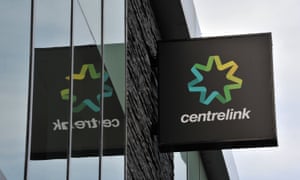The value of tax refunds seized by Centrelink for robodebts and welfare overpayments doubled in 2018-19
Centrelink
has dramatically ramped up its seizure of tax refunds to target past
welfare recipients over robodebts and other welfare overpayments, new
figures reveal.
In a response to a Senate question on notice, the Department of Human Services confirmed it recovered $63.4m in 2018-19 by asking the Australian Tax Office to reclaim a person’s tax refund to pay an outstanding debt.
The sum, revealed to Labor senator Kimberley Kitching, is double the amount seized by the department in the previous 12 months ($31.5 million), and also dwarfs the figures in 2016-17 ($37.7 million) and in 2015-16 ($32.8 million) when the robodebt scheme was introduced.
Labor’s government services spokesman, Bill Shorten, labelled the doubling of the revenue reaped from the garnisheeing of tax returns “extraordinary”.In a response to a Senate question on notice, the Department of Human Services confirmed it recovered $63.4m in 2018-19 by asking the Australian Tax Office to reclaim a person’s tax refund to pay an outstanding debt.
The sum, revealed to Labor senator Kimberley Kitching, is double the amount seized by the department in the previous 12 months ($31.5 million), and also dwarfs the figures in 2016-17 ($37.7 million) and in 2015-16 ($32.8 million) when the robodebt scheme was introduced.
“That’s a lot of Australians potentially having their tax return unfairly wrenched from their hands,” he said.
“We support legitimate debt recovery but robodebt is so inaccurate and malfunctioning that at least one-fifth of these claimed debts are totally wrong.”
The ramp-up comes as the Coalition’s controversial debt recovery scheme faces a potential class action from Gordon Legal, which was announced by Shorten last week, and a separate federal court challenge by Victoria Legal Aid.
In the second case, the Department of Human Services has already been forced to repay the plaintiff, Deanna Amato, after it took her $1,700 tax return but later recalculated her debt at less than $2.
Some people impacted by robodebt have complained of first learning that they owed the government money when their tax return was taken. Others have accused the department of seizing their tax return despite having asked Centrelink to review the debt.
Katherine Boyle, the coordinator of the Welfare Rights Centre, said the organisation had concerns about the the use of tax garnishee notices to seize money over robodebts.
“It’s wrong to be taking people’s tax returns when the debts haven’t been proved,” she said.
“It makes the robodebt system even more egregious because not only are wrong debts being raised against these people, but they’re actually being forced to pay them back in one go before those debts have been proved.”
Boyle said that once a person’s tax return was seized, they could have to wait 12 months for their debt to be reviewed by Centrelink, and noted that the practice hit vulnerable people particularly hard.
“We know that our clients are often not on very high incomes, and they rely on their tax returns to cover expenses,” she said.
In August, Guardian Australia revealed the case of Sue Prgic, who was experiencing homelessness when she had her entire $3,500 tax refund taken. She told Guardian Australia at the time she intended to use her refund to find a place to live.
The government services minister, Stuart Robert, declined to comment on the use of tax garnishee notices. A spokesman referred Guardian Australia to the minister’s press conference last week defending the scheme.
Robert said last week citizens at any point could bring forward documents to explain the discrepancy between the income they reported to Centrelink and their income tax return.
The spokesman also pointed to past remarks from Labor frontbencher Chris Bowen.
“The tax garnishee project focuses on outstanding social security, student assistance and family assistance debts of former Centrelink customers in cases where no repayment arrangements have been put in place,” Bowen said in 2010.
While the online welfare debt compliance system was introduced under Labor, it was significantly ramped up and automated under the Coalition.
The department told Kitching it did not have data on how many individual tax returns were garnisheed. The money recovered would include debts raised through the robodebt data-matching scheme, as well as other welfare debts which occur outside this process.

No comments:
Post a Comment